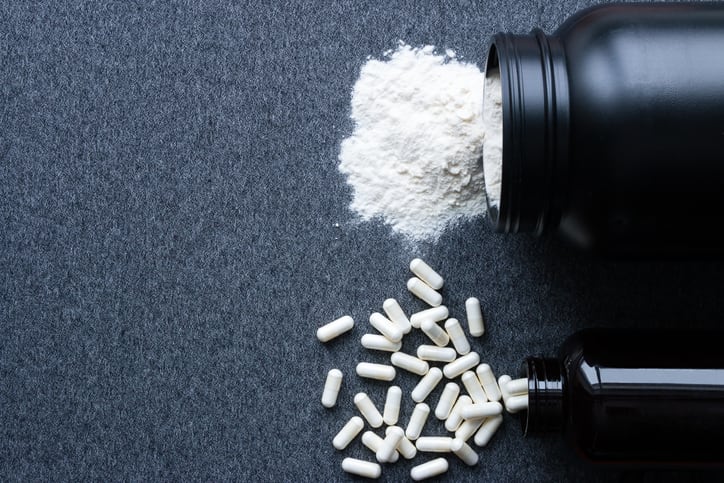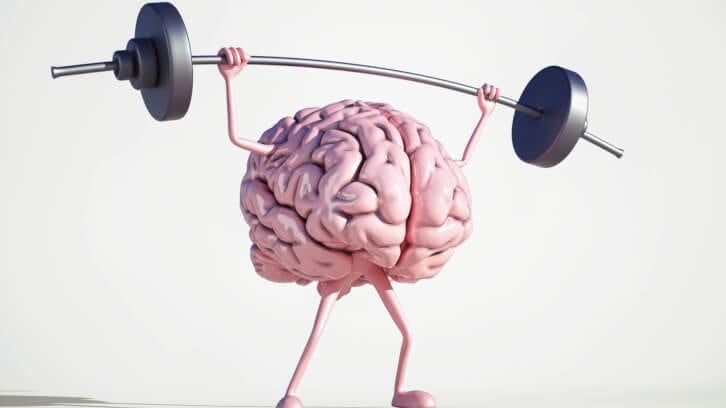Published in the journal Nature, the study was conducted by a team of researchers from the Institute of Neuroscience and Medicine and Aachen University Hospital in Germany who hypothesized that a combination of increased creatine availability and intracellular energy consumption would temporarily increase central creatine uptake.
"Our study showed the effect of a high dose of creatine against sleep deprivation-induced deterioration in cognitive performance, lasting up to 9 h and showing its maximum cognitive effect at 4 h after oral administration," they reported.
Creatine and sleep deprivation
The study noted that the modern lifestyle is often propped up by psychoactive substances like caffeine and accompanied by sleep deprivation, a state which lends itself to negative outcomes ranging from reduced performance to chronic disease.
While creatine supplementation has been extensively studied for its ergogenic benefits in sports nutrition (with the muscle loaded over time), research has also revealed its potential cognitive benefits, as well as changes in creatine-related metabolites linked to sleep disorders and states of sleep deprivation.
"The inverse effects of creatine supplementation and sleep deprivation on high energy phosphates, neural creatine and cognitive performances suggest that creatine is a suitable candidate for reducing the negative effects of sleep deprivation," the researchers wrote.
They added that for this application, the main obstacle is reaching efficacious levels due to the limited exogenous uptake of creatine by the central nervous system (CNS), which has required repeated dosing over weeks to achieve detectable levels. While the optimal dosage needed to increase brain creatine levels is yet unclear, some studies have found that 20 g a day for 7 to 28 days improved levels in young, healthy adults.
Commenting independently on the current study, Dr. Ralf Jäger, FISSN, CISSN, MBA, managing member of global consulting firm Increnovo, explained that creatine seems to be most effective during times of stress—either as a result of sleep deprivation, hypoxia, more demanding cognitive tasks or in people with low creatine levels like vegetarians.
"This new study showed that even an acute supplementation with creatine can be effective to enhance mental performance, which is an exciting new finding, and in contrast to what is needed for physical performance," he said.
Study details
For this double-blind, randomized, prospective crossover trial, 15 participants between the ages of 20 and 28 (8 female) performed cognitive tests during sleep deprivation after consuming either a high single dose (0.35 g/kg) of creatine monohydrate (Alzchem) or a corn starch placebo. After a minimum interval of five days, they switched test groups.
Evaluations included two consecutive 31P-magnetic resonance spectroscopy (MRS) scans and 1H-magnetic resonance spectroscopy (MRS) used to quantify biochemical compounds or metabolites in the brain tissue, along with a collection of cognitive tests performed at evening baseline and at 3 hours, 5.5 hours, and 7.5 hours after supplementation.
Findings indicated that sleep deprivation led to a profound cognitive and metabolic response and that acute creatine was bio-available to the brain as suggested by increased total creatine (tCR)/total N-acetylaspartate (tNAA) and reduced subjective fatigue compared to placebo.
"Creatine alleviated changes in phosphates, pH levels and fading of cognitive performance evoked by sleep deprivation," the researchers reported. "Creatine induced increases in PCr/Pi, declines in ATP and improvements in cognitive performance and processing speed exceeding wake baseline."
They suggested that the crucial factor to overcoming marginal intracellular creatine uptake was, as hypothesized, the increased energy demand of the neuronal cells in combination with an increased extracellular creatine availability.
"It can be concluded that creatine has the potential to be used in prolonged cognitive activity during sleep deprivation," the study noted, calling for future research to investigate appropriate dosage and to specify the time point at which creatine reaches peak effect.
Source: Nature
doi: 10.1038/s41598-024-54249-9
“Single dose creatine improves cognitive performance and induces changes in cerebral high energy phosphates during sleep deprivation”
Authors: Ali Gordji‐Nejad et al.




